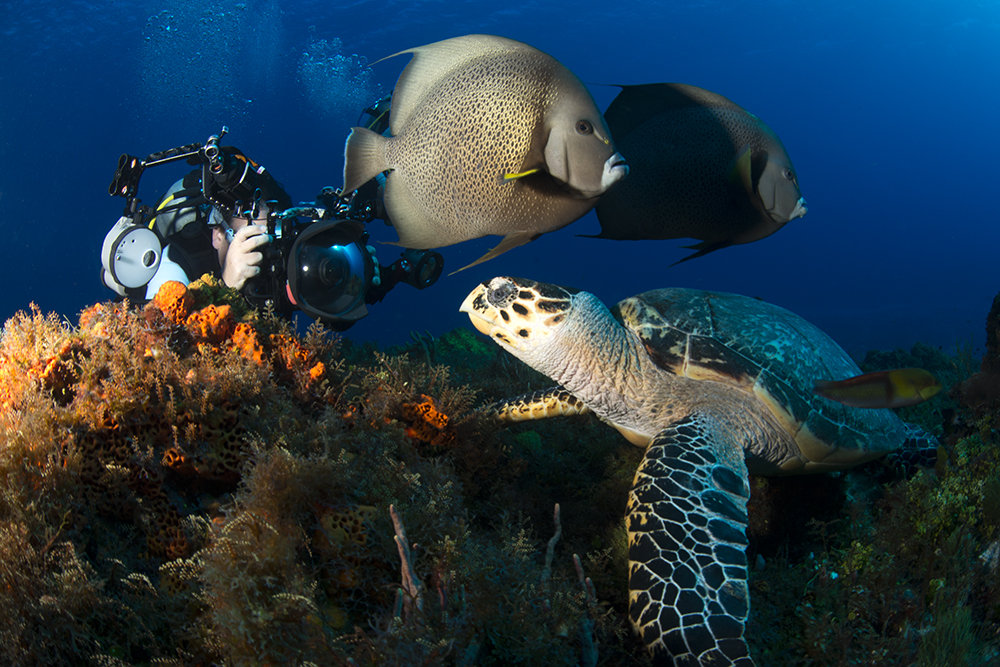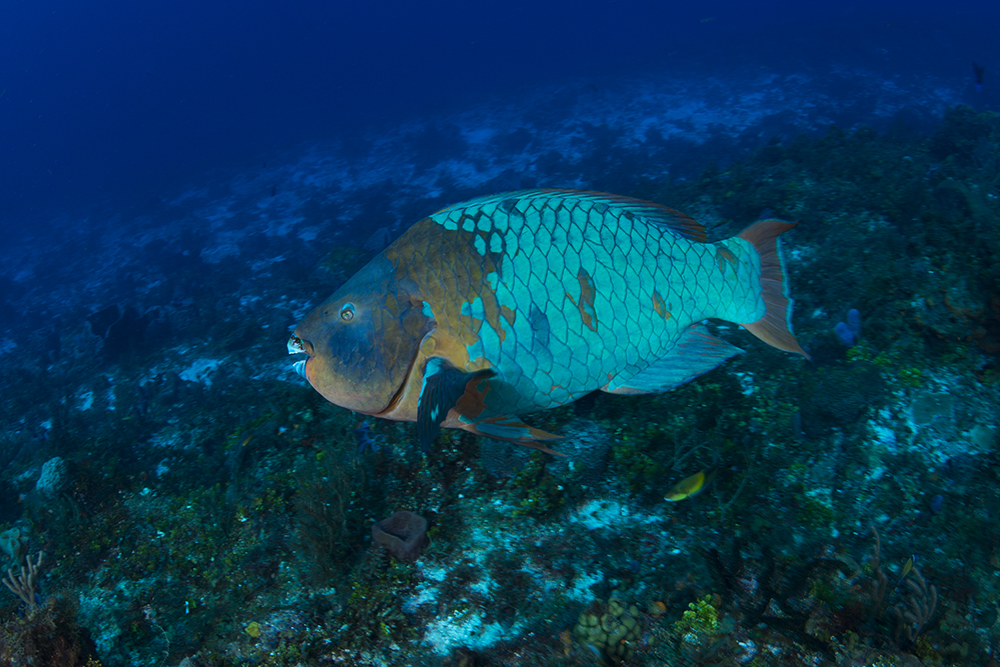Marine Protected Areas (MPAs) have been largely accepted as the standard way to protect marine biodiversity. However, a new study has shown that their benefit is even better than first suspected, and it all comes down to the size of the fish.
I’ve dived in a number of MPAs, and in one in particular, off the coast of Mexico, I encountered some particularly large fish, that elsewhere in their range are targeted by spearfishing. I may have read a lot into their behavior, but they seemed to be not only larger, but also to view me as less of a threat. Now this was great for me but allowing fish to reach a large size has a significant conservation benefit. Compared to small fish, they produce far more eggs; well, the females anyway.

In this protected area, the Angels were easily approached, though the grazing potential on this turtle’s shell was very tempting.
To use the text from the study’s abstract:
“…fish reproductive output scales “hyperallometrically” with fish mass, such that larger fish produce more offspring per unit body mass than smaller fish.”
The upshot of this is that, by protecting some areas, there are more fish to repopulate adjacent areas where fishing is allowed. Everyone wins!
The study shows that fish, on average, grow twenty five percent longer inside MPAs than outside, but an MPA fish, on average, produces almost three times more offspring and given the higher fish numbers in the MPAs, due to no fishing MPAs are even more valuable.
The researchers looked at Coral Trout populations on the Great Barrier Reef to investigate if this premise was accurate, after all, it only works if fish move freely from MPAs to non-protected areas. They found a twelve percent increase in tonnes of caught fish.
The team conclude that MPAs are a useful tool not only for conservation, but for increasing commercial catches.
https://esajournals.onlinelibrary.wiley.com/doi/10.1002/fee.2075











0 Comments